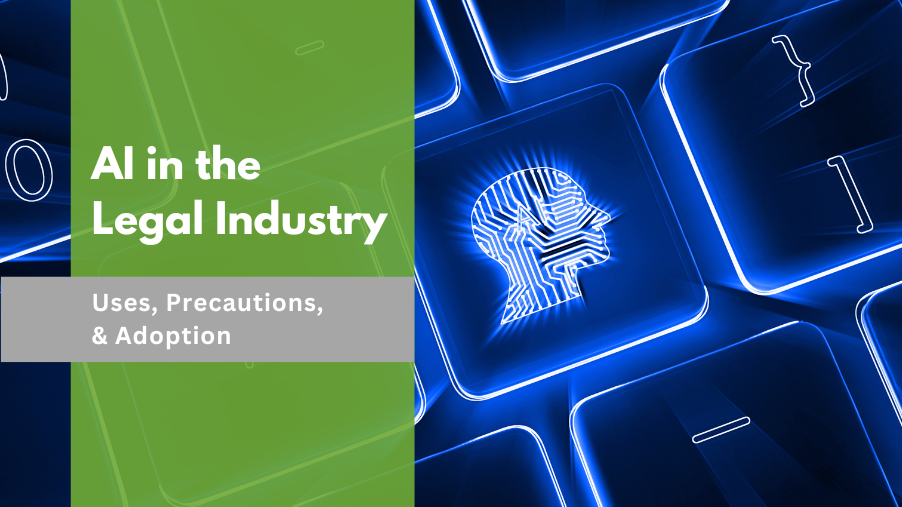AI Enhances Legal Services, Boosts Efficiency and Affordability
AI transforms legal services, enhancing efficiency and affordability without replacing lawyers. Adoption grows, reshaping pricing models and skills.

AI Won’t Replace Lawyers But Will Make Legal Services More Affordable and Efficient
Artificial Intelligence (AI) is rapidly transforming the legal profession, not by replacing lawyers, but by reshaping how legal services are delivered, making them more affordable, efficient, and accessible. With mounting adoption across law firms and corporate legal departments, AI is emerging as a powerful tool that enhances legal workflows, reduces costs, and enables lawyers to focus on higher-value tasks.
AI Adoption in the Legal Industry: Current Landscape and Growth
AI integration in legal practices has accelerated significantly over the past two years. According to a 2025 CLOC (Corporate Legal Operations Consortium) report, about 30% of legal teams currently use AI, with over 54% planning to adopt it within the next two years, suggesting that by 2027, more than 80% of in-house legal departments will leverage AI tools. This trend underscores AI’s transition from experimental to mainstream technology in legal services.
The global legal-AI market reflects this growth, projected to expand from $2.1 billion in 2025 to $7.4 billion by 2035, representing a compound annual growth rate (CAGR) of approximately 13.1%. More than 65% of law firms now have AI strategies or policies, showing a widespread institutional commitment to AI adoption.
How AI Enhances Legal Services Without Replacing Lawyers
Automation of Routine Tasks
AI excels at automating repetitive and time-consuming tasks such as:
-
Document review and e-discovery: AI can sift through millions of emails, contracts, and case documents, identifying relevant information swiftly, flagging privileged content, and predicting document relevance for litigation purposes.
-
Contract analysis: Machine learning tools rapidly analyze contracts for regulatory risks, specific clauses, or compliance issues, facilitating faster due diligence especially in mergers and acquisitions.
-
Drafting correspondence and legal documents: AI assists lawyers in drafting initial versions of documents, client alerts, and emails, increasing speed and reducing manual effort.
By handling these tasks, AI reduces the workload of lawyers, allowing them to concentrate on complex legal reasoning, client counseling, negotiation, and courtroom advocacy, areas where human judgment remains essential.
Human-in-the-Loop Model
Despite AI’s capabilities, law firms maintain a “human-in-the-loop” approach, where legal professionals validate, audit, and oversee AI outputs. This ensures ethical compliance, accuracy, and accountability, which are critical in the highly regulated legal environment. Lawyers remain indispensable for interpretation, strategic decision-making, and ethical assessments.
Impact on Affordability and Pricing Models
AI’s efficiency gains are driving significant cost savings in the legal industry. Each lawyer is estimated to save about 190 work-hours annually by leveraging AI tools, translating into roughly $20 billion in work savings in the U.S. alone. These savings enable law firms to offer more affordable services to clients by reducing billable hours spent on routine tasks.
Moreover, AI is challenging the traditional billable hour model. With AI accelerating task completion, firms are shifting toward value-based or outcome-based pricing models that reward efficiency and results rather than time spent. This shift aligns with client demands for transparency, predictability, and cost-effectiveness.
Smaller law firms, previously constrained by limited resources, are gaining competitive advantages through AI adoption. AI tools provide access to advanced technologies without heavy investments, enabling these firms to innovate pricing and service delivery models and better compete with larger firms.
New Skills and Roles Emerging in the Legal Profession
The rise of AI in law is creating demand for new skills and roles:
-
Data literacy and AI auditing: Lawyers increasingly need to understand AI systems to oversee their use responsibly.
-
AI governance and ethics: Developing policies around AI transparency, data security, and bias mitigation is becoming a critical function within firms.
-
Technical collaboration roles: Hiring in IT, innovation, and knowledge management is growing to support AI implementation.
This evolution is transforming legal careers, emphasizing a blend of legal expertise and technical fluency.
Challenges and Ethical Considerations
While AI offers substantial benefits, challenges remain:
-
Bias and fairness: AI systems trained on historical data may perpetuate biases, affecting recruitment decisions and legal outcomes.
-
Integration pace: Surveys reveal that only a minority of lawyers say AI is fully embedded in their operations, indicating a slow cultural adoption despite growing interest.
-
Regulatory and ethical oversight: Continuous human supervision is necessary to prevent misapplication and ensure AI aligns with legal standards.
Visualizing the AI Legal Transformation
For illustration, relevant images include:
- Screenshots or demos of AI-powered legal research platforms (e.g., contract analysis dashboards).
- Photos of law firms’ innovation teams or legal tech conferences showcasing AI adoption.
- Infographics depicting AI’s impact on legal workflows and cost savings.
- Portraits of key figures driving AI integration in legal tech companies or law firms.
Context and Implications
AI’s integration into the legal profession is a paradigm shift rather than a replacement. It democratizes access to legal services by lowering costs and increasing efficiency, thereby benefiting clients who previously found legal help prohibitively expensive. Law firms that embrace AI stand to gain competitive advantage through higher productivity, innovative pricing, and enhanced client satisfaction.
However, the profession must navigate ethical challenges to maintain fairness and accountability. The future legal landscape will likely feature a collaborative synergy between human lawyers and AI, where technology augments human judgment and creativity rather than substitutes it.
As AI continues to evolve, ongoing investment in skills development, governance frameworks, and transparency will be essential to harness its full potential while safeguarding justice and professional integrity.



